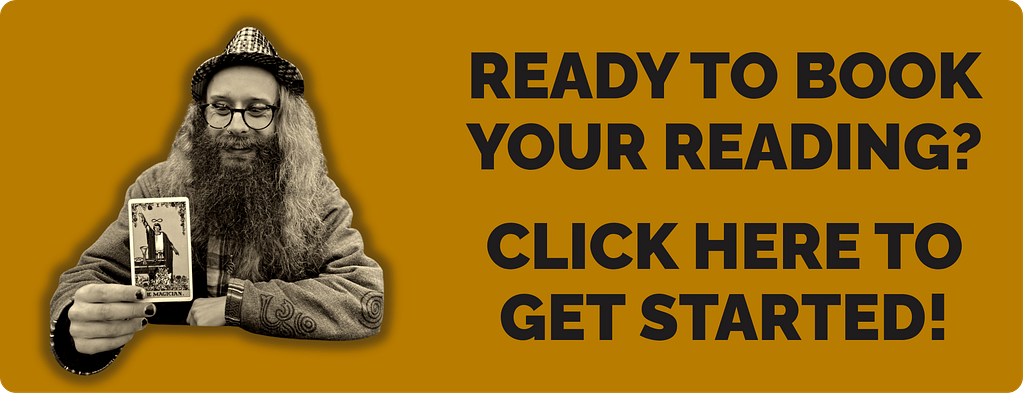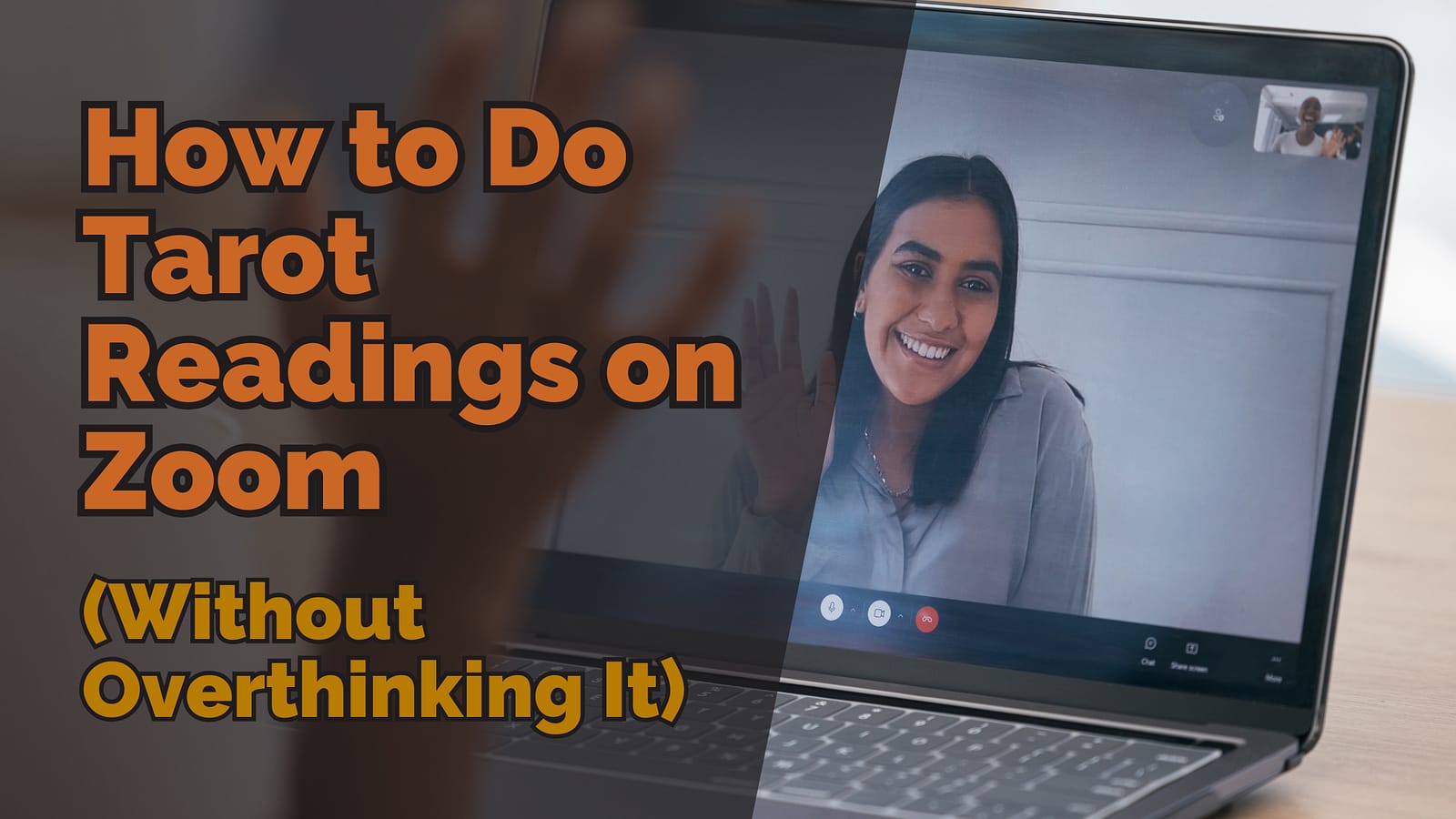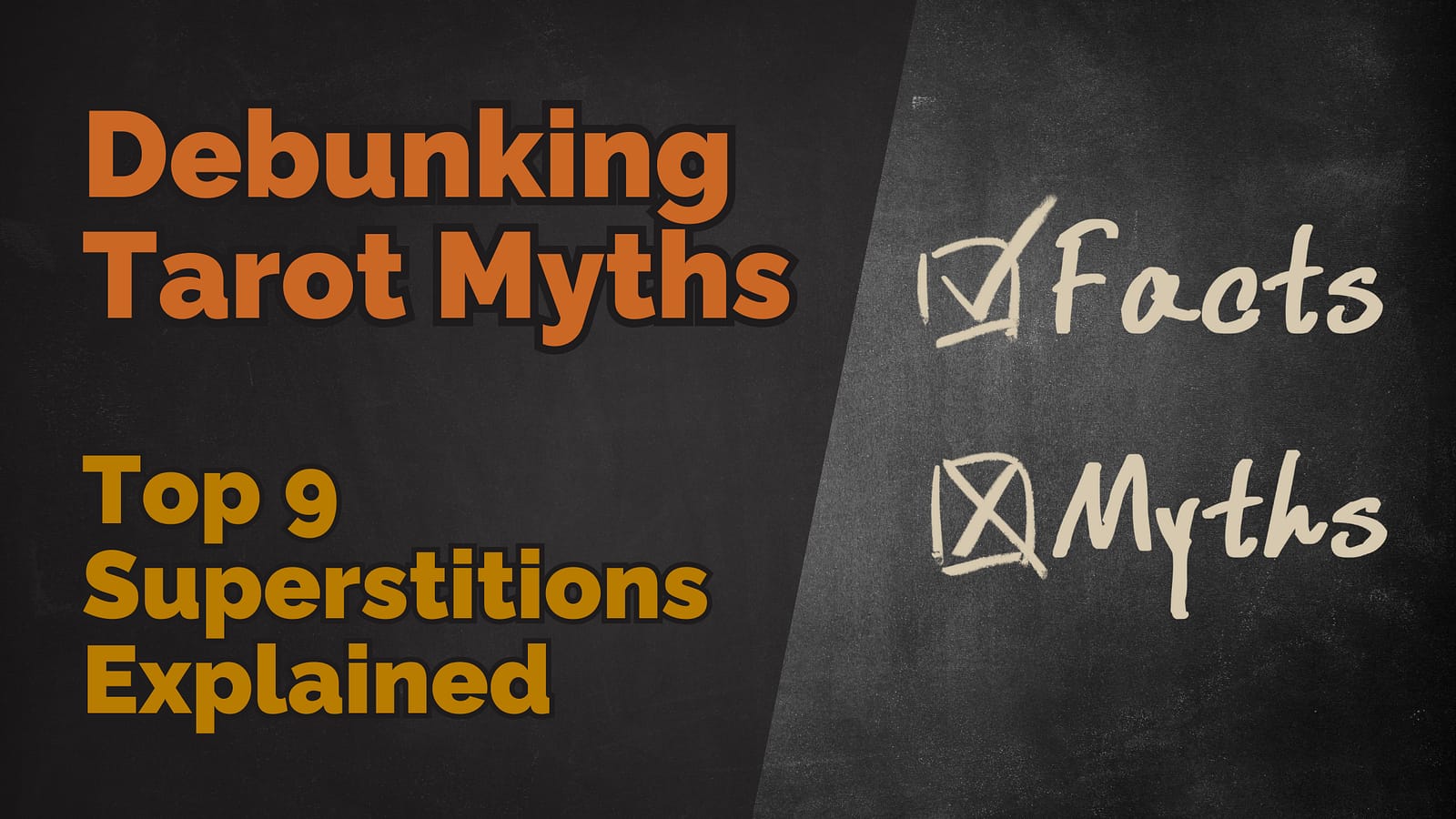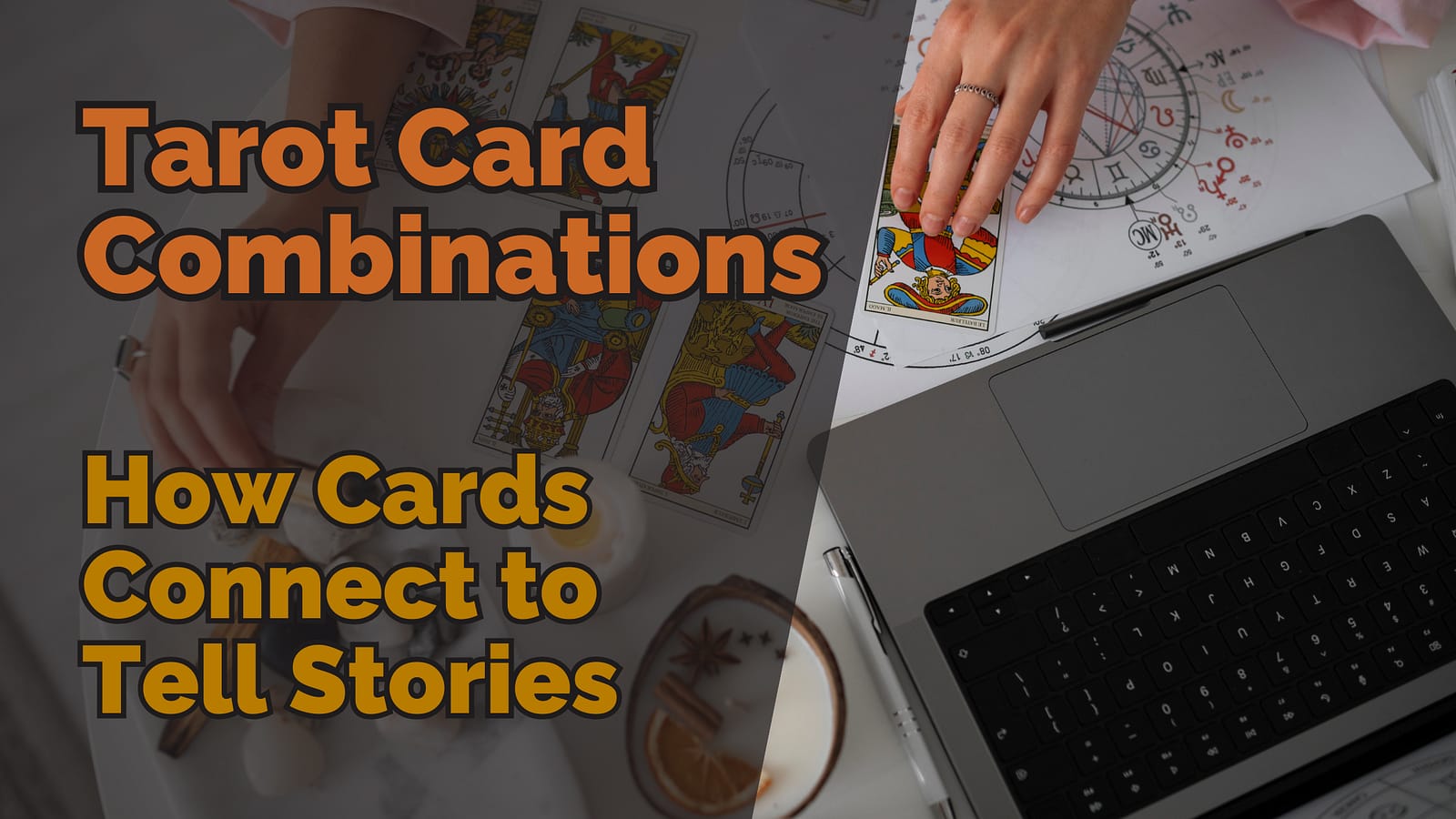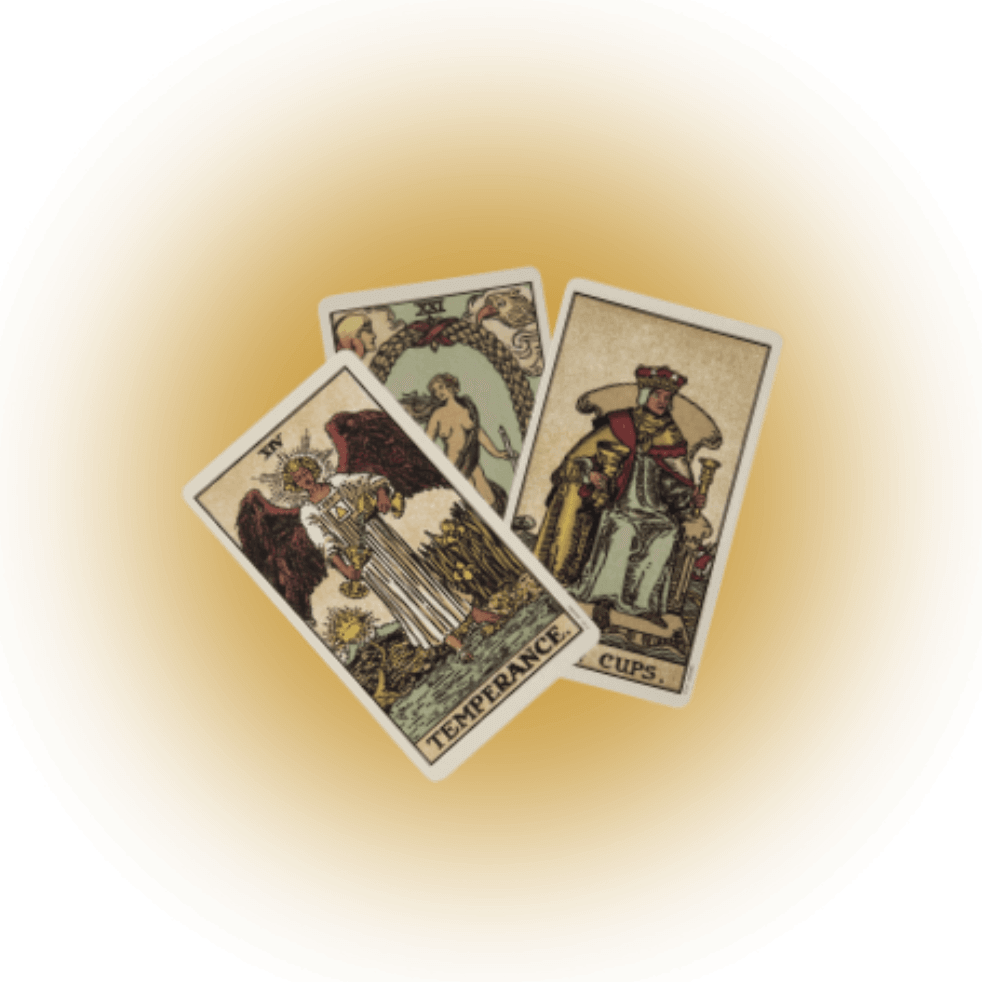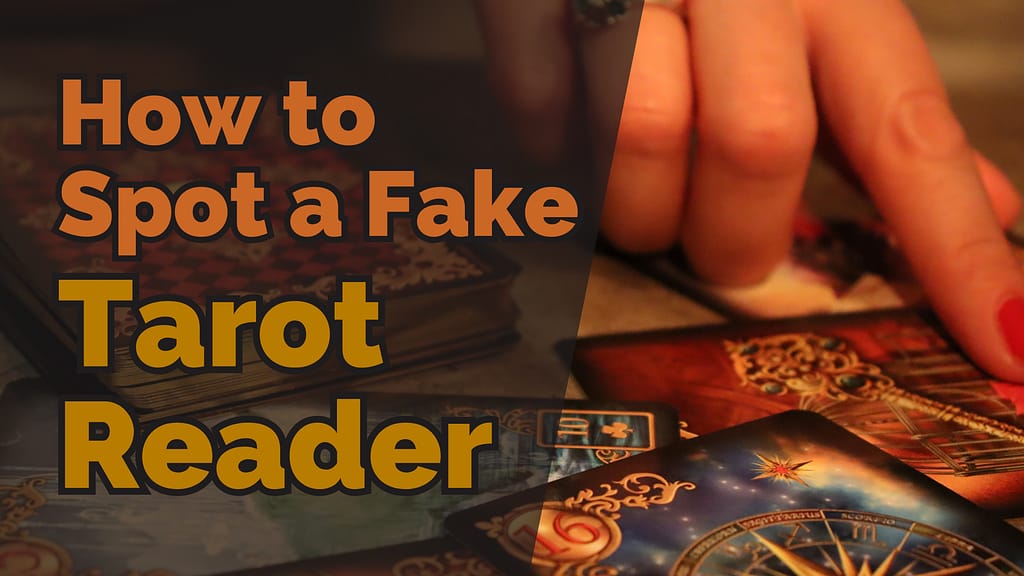
Table of Contents
Tarot is having a moment. It’s everywhere. On TikTok. On Instagram. On YouTube. Readers offering insight, guidance, life-changing wisdom… or so they say.
The truth is, not everyone reading cards out there gives a shit about you. Some just want your money. Some want attention. Some are flat-out manipulative. And in a world where it’s easier than ever to set up shop and start pulling cards, it’s important you know how to spot a fake tarot reader and what to look for instead.
I’m not just talking from theory here. I started out on TikTok. I did readings for thousands of people. It was a baptism by fire. It also taught me exactly what not to do. I’ve seen what works, what doesn’t, and what crosses the line. So let’s talk about it.
Red Flags: How to Spot a Fake Tarot Reader
If you’re wondering how to spot a fake tarot reader, start with the red flags. These are the signs that scream manipulation, ego, or flat-out scams.

They Use Fear to Hook You
Some fake tarot readers won’t guide you. They’ll scare you. They’ll talk about curses, dark energy, hexes, or negative spirits around you, and then offer to fix it for a fee. It’s spiritual blackmail.
I’ve seen TikTok readers say things like “someone’s talking shit about you” or “something bad is coming your way” and then tell people to send them gifts or book a reading to find out more. It’s predatory. It’s fucking manipulative. And it’s designed to get clicks and cash, not offer clarity.
They Promise Certainty
If a reader tells you they know for sure what’s going to happen, walk away.
Fake tarot readers will promise certainty because they know that’s what people want to hear. But ethical tarot readings are not about certainty. They’re about possibility, reflection, and clarity. Anyone telling you, “Yes, you’ll win your legal case,” or “You’re pregnant,” or “This is 100 percent your soulmate” is selling snake oil.
You deserve more than that. And if someone’s offering certainty, they’re either lying to you or to themselves.
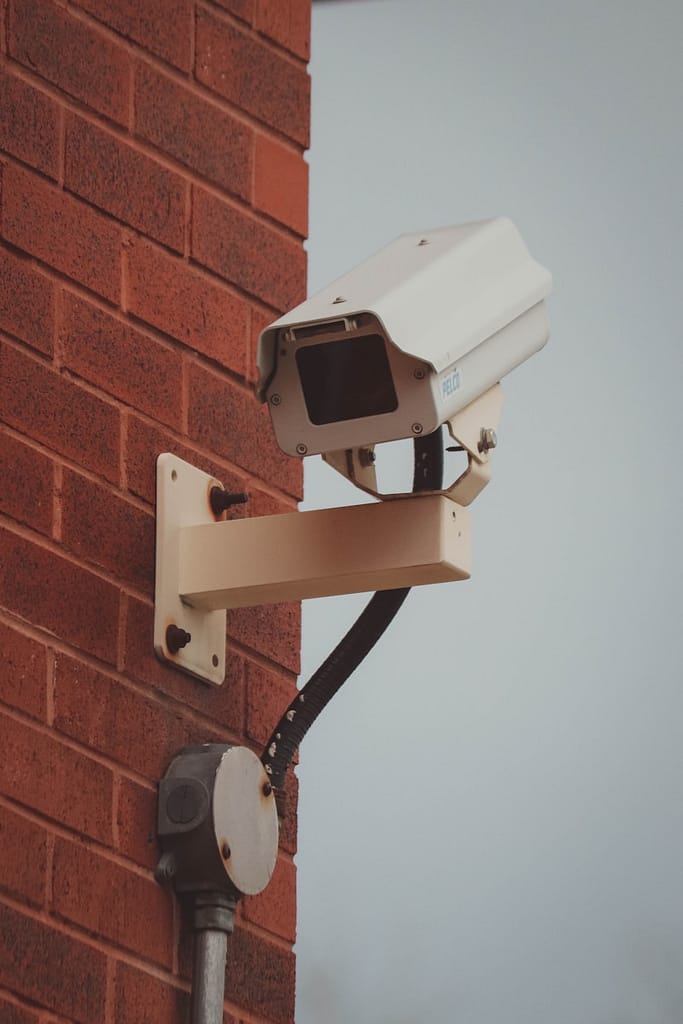
They Spy on Your Ex (and Everyone Else)
“Is my ex still thinking about me?” “Are they happy with their new partner?” “Are they cheating?”
If your reader is diving into other people’s heads without consent, that’s not intuition. That’s intrusion. This is one of the biggest tarot reader red flags out there.
I used to do these readings. They felt wrong. Because they are wrong. If someone’s offering you insight into someone else’s private life without a second thought, they don’t respect boundaries. Yours or theirs.
They Rely on Vagueness and Gimmicks
Pick-a-card readings. “This message is for you if it found its way onto your feed.”
Let me be clear. Sometimes these videos are paid ads. But even when they’re not, they’re still a clever bit of marketing. And I know this because I’ve done them. I’ve played that game.
It works. It gets views. It feeds the algorithm and strokes the ego. But every time I posted one, I got a sour taste in my mouth. Because deep down, I knew: it wasn’t honest. It was designed to be just vague enough that anyone could relate to it. It was about reach, not depth.
If someone’s got 150,000 views on a video that claims to be just for you, you can be damn sure it’s not. It’s performance. It’s marketing. Not magic.
There are better ways to connect with people through tarot. And that kind of bait just ain’t it.
They Push for More Money After the Fact
If a reader tells you the reading will cost £20, but then tells you mid-way that you need to pay another £100 to lift a curse, or buy a candle, or get the full message, that’s a scam.
A trustworthy tarot reader is upfront about their prices. You know what you’re paying. You know what you’re getting.
They Don’t Respect the Cards (or the Craft)
Let me be clear: ethical tarot readings don’t require sticking to the book meanings word-for-word. I certainly don’t.
But there’s a difference between intuitive interpretation and making stuff up to sound good.
When I read, I consider the traditional meanings. But I also read the cards in context. I look at what’s around them. I listen to what the client’s asking. I read the energy of the spread. The meanings might not always match the textbook, but they come from a place of understanding the system and respecting the symbols.
I’ve seen fake tarot readers on TikTok pulling a new card every second, giving instant hot takes that don’t connect to anything. That’s not intuitive reading. That’s attention-grabbing fluff dressed up as insight.
If someone’s throwing out meanings that sound profound but don’t connect to the imagery or the question, that’s a red flag. It’s not about sticking to the book; it’s about whether they’ve done the work to understand what they’re actually doing.
Why This Stuff Is So Harmful
They Make Harmful Claims About Life and Death

One of the most manipulative things I’ve seen in the tarot world is readers claiming they can predict death. I used to know someone who said, “If a certain card comes up, I know someone’s going to die or there’ll be a death in the family.” They’d talk about it like it was a certainty, as though they’d seen it before and believed it must be true.
That kind of reading doesn’t come from intuition. It comes from ego and irresponsibility. Telling someone that they’re going to die, or that someone they love is going to die, is beyond unethical. It’s cruel. It’s dangerous. It messes with people’s emotions in ways that can’t be undone.
On the flip side, telling someone they’re going to survive something serious, that their treatment will definitely work, that they’re not going to die is equally manipulative. You are not their doctor. You are not their god. You’re a person with a deck of cards, not a miracle worker.
Tarot is powerful, but it’s not a crystal ball. And anyone who pretends otherwise is playing with people’s lives.
They Exploit Real-Life Vulnerability
Fake tarot readers aren’t just annoying. They’re dangerous.
When I was reading on TikTok, I had people asking if they had cancer. If they were pregnant. If their partner was cheating. If they should invest in crypto. If they’d win their custody case.
It hit me. People were making real-life decisions based on what I was saying. And that’s terrifying if the reader doesn’t know what they’re doing, or doesn’t care.
Scammy readers exploit vulnerability. They use someone’s worst fears and deepest hopes to make a sale. And they make ethical tarot readings look like con artistry by association. That’s why this matters.
It also cheapens the whole practice. Because when tarot gets treated like clickbait, people stop trusting it. They think it’s all nonsense. And that means people miss out on something that could actually help them reflect, grow, and move forward.
What to Look for in a Trustworthy Tarot Reader
They Have Clear Ethics and Boundaries
A trustworthy tarot reader will not read on health, pregnancy, legal issues, or third parties. Full stop.
They’ll tell you what’s off limits. They’ll tell you what they can help with. They’ll treat the reading as a space for reflection and empowerment, not predictions and control.
You can read my own ethical tarot readings policy if you want to see what that looks like in action.
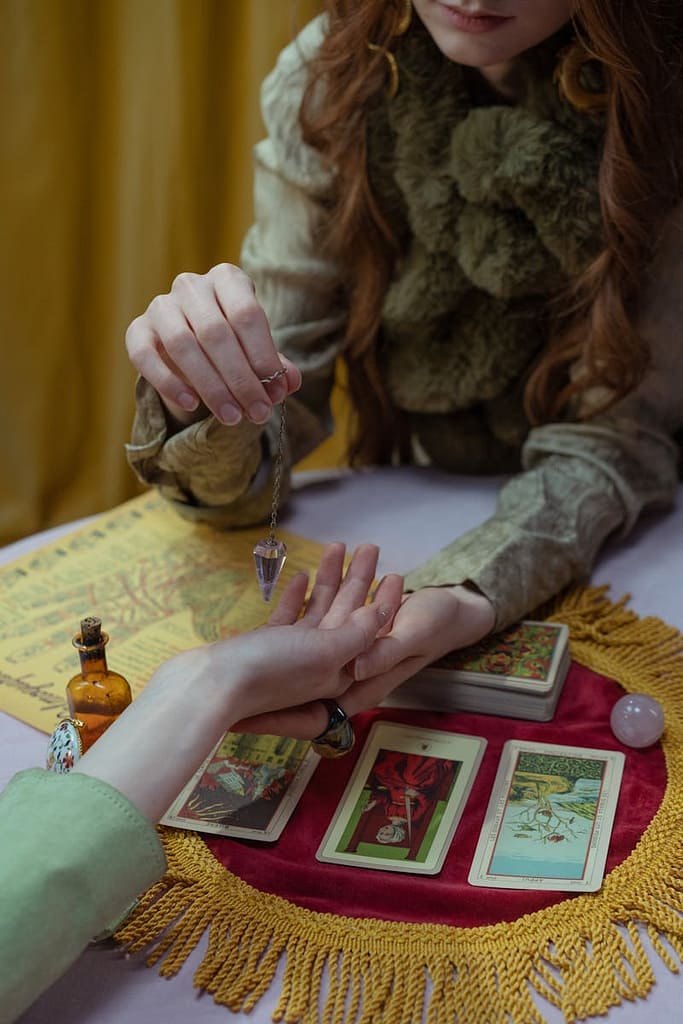
They Collaborate With You
A proper reading is a conversation. It’s not a monologue. It’s not a magic trick.
A good reader will ask what you’re hoping to get from the session. They’ll adapt to your needs. They’ll walk you through the cards, not just throw phrases at you. They won’t perform at you. They’ll work with you.
When I read for someone, I’m not sitting there pretending I have all the answers. I’m sitting with you in the mess. I’m helping you untangle what’s underneath. We’re figuring it out together.
They Empower You
You should walk away from a reading feeling clearer, more grounded, and more capable. Not more dependent on your reader.
I’ve had clients say, “Thank you, I feel like I know what to do now.” That’s the goal. Not “Wow, you knew everything about me.”
Ethical tarot readings give you something to work with. They don’t hand you a script for your life. They give you space to reflect and act.
They’re Transparent About Pricing and Process
No hidden fees. No last-minute add-ons. No weird upsells mid-reading.
A trustworthy tarot reader will be clear about what they offer and how much it costs before you hand over your money.
You shouldn’t have to guess whether someone’s legit. Transparency is the bare minimum.
They Show Their Work
Look at what else they put out. Do they write about tarot? Teach it? Reflect on it publicly? Or are they just posting video after video saying what people want to hear?
I run a course called Simply Tarot that teaches people how to read the cards ethically. I’ve written pages and pages of card meanings. I care about this work. You want a reader who does too.
Final Thoughts: Don’t Settle for Clickbait Tarot
If you’ve been burned before, I get it. There’s a lot of noise out there. A lot of empty promises. A lot of fake tarot readers who care more about clout than clarity.
But tarot… real tarot… can be powerful. It can help you see yourself more clearly. It can help you move forward. Not because someone gave you The Answer, but because someone helped you ask better questions.
And if you’re learning to read tarot yourself, do it with intention. Do it with care. Do it like it matters.
Because it does.

